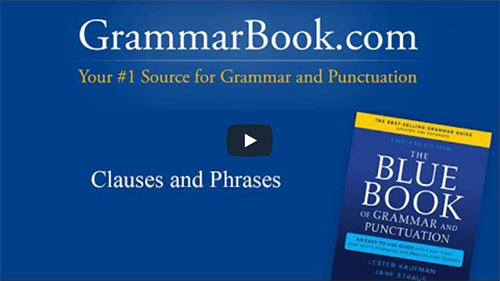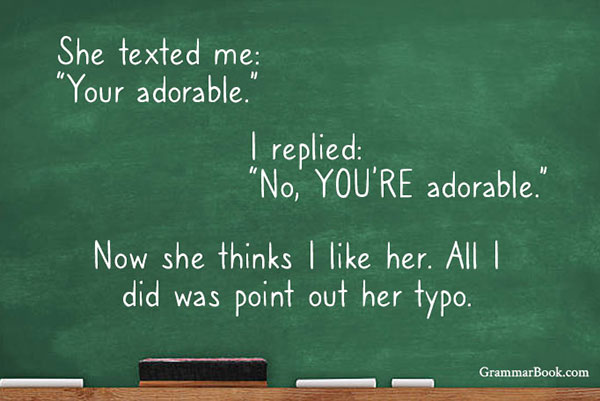|
Every English verb has an infinitive, which is the base form of the verb before it is conjugated. It consists of the word to and the present form of the verb (the infinitive stem): e.g., to run, to sing, to write, to follow.
Although an infinitive is the base of a verb, it does not function as one. Rather, it will serve a sentence as a noun (subject, subject complement, or direct object), an adjective, or an adverb. When operating in these ways, if the infinitive has any modifiers, the entire infinitive phrase is included in the part of speech.
Examples
To sprint faster is the challenge Nathan set for himself.
She gave him the envelope to bring to his boss.
Billy wants to play soldiers, but Robby would like to play marbles. |
Infinitives as Subject Nouns
An infinitive or an infinitive phrase can function as the thing or idea the sentence is about, making it a noun.
To make a mistake in this business is common.
To wait seems futile right now.
To swim in the roped-off area of the beach might not be a good idea.
To ace the exam will be Ryan's next primary goal. |
Note that the subject in the second example is an infinitive, and the other three sentence subjects are infinitive phrases.
Infinitives as Subject-Complement Nouns
Infinitives and infinitive phrases can identify or describe a sentence subject as its noun complement.
Ryan's next primary goal will be to ace the exam.
Your best option could be to run for board treasurer.
The mayor's final decision was to keep the bridge open.
Hamlet's goal is to be. |
The first three examples have infinitive phrases as subject complements, and the subject complement in the last example is an infinitive.
Infinitives as Direct-Object Nouns
Infinitives and infinitive phrases can receive the action of the verb in a sentence. This can include an infinitive that is part of a direct object preceding it.
I would like to learn more about the space program before I join it.
Joel asked Stephanie to meet him by the shoe store.
The rattle made the baby (to) smile.
Everyone plans to go. |
The first two examples include infinitive phrases as direct objects. In the last example, the direct object is an infinitive.
In the third example, the baby is the subject of the infinitive to smile, and the infinitive phrase the baby to smile is the direct object of the verb made. The word to is placed in parentheses to indicate it is typically omitted as understood in standard writing and speech. You may see such omission with certain other infinitives as well:
Arnie kept the frogs in a bucket for a week and then decided to let them (to) go.
He dared not (to) speak after learning they'd found out about his secret trip to Alaska. |
Infinitives as Adjectives
Infinitives and infinitive phrases can modify nouns as adjectives in sentences. This can include an infinitive that appears after another adjective within an expletive construction such as it is.
Please give Annette this clipboard to write on.
It is wonderful to have a hobby you enjoy.
I must go now because I have a job to do.
Carmen and Carlisle had something common to discuss. |
The first example has an infinitive with a particle (write on) describing a noun (clipboard). In the second, an infinitive phrase further modifies the adjective wonderful. The third example is an infinitive describing job, and the fourth, like the second example, further modifies an adjective (common).
Infinitives as Adverbs
Infinitives and infinitive phrases can act as adverbs modifying verbs, adjectives, or other adverbs.
Johnny joined the military to serve his country. (adverbial infinitive phrase modifying main verb joined)
Amy went to the mall to shop. (adverbial infinitive modifying main verb went)
The space explorers were amazed to discover a boiling lake on the distant planet. (adverbial infinitive phrase modifying adjective amazed)
Would you show me affection merely to gain my fortune? (adverbial infinitive phrase modifying adverb merely) |
Related Topic
Split Infinitives: To Split or Not to Split
| 




